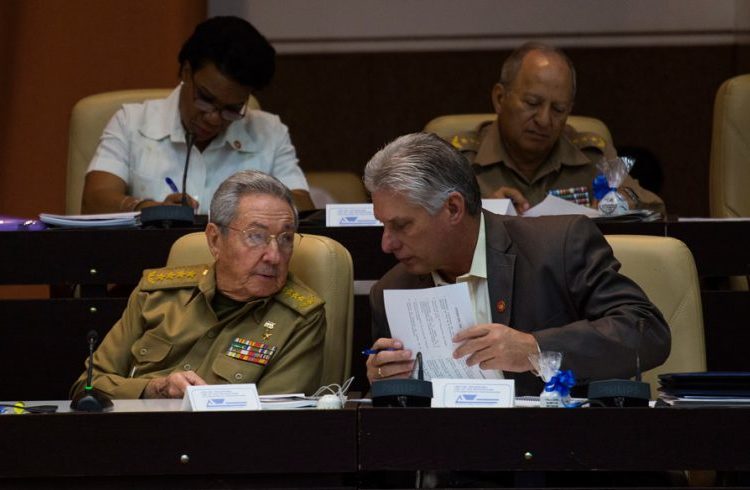The Cuban National Assembly of People’s Power (Parliament) this Thursday extended the mandate of the current legislature (the eighth) until April 19, 2018.
The Cuban MPs approved that date for the election of the new president of the Assembly and the members of the Council of State, including the country’s president for the next five years.
The current Provincial Assemblies will maintain their mandate until March 25.
This decision supposes the delay of the elections for delegates to the Provincial Assemblies and the deputies to Parliament, whose date had still not been officially announced but which should have been carried out early next year.
The new date hasn’t been announced either.
Raúl Castro
President Raúl Castro had repeatedly said that he would leave his post in February, which presumably meant that the constitution of the new National Assembly and the election of the Council of State would be that month, possibly the 24th, the day chosen on previous occasions since it coincides with the start of the 1895 war of independence.
The reasons
The extension is based on the damages caused by Hurricane Irma and which delayed the electoral schedule. Due to the hurricane, the Council of State postponed for November 26 the first round of the municipal elections that should have been held in October and in which 89.02 percent of the more than 8 million Cubans who were summoned voted.
This parliamentary session is the second regular one of 2017 – in June an extraordinary one was held in which Parliament approved the guiding documents of the Cuban economic reform – and the last of the eighth legislature, functioning since five years ago. It should also be the last that Raúl Castro will attend as president, who, with what has now been approved, could leave his post in April.
The current state of the Cuban economy and foreign investment is being debated. In addition, the Economic Plan and the draft of next year’s State Budget will be presented and the People’s Supreme Court and General Attorney’s Office of the Republic will render accounts to the MPs.
Cabrisas: economy grew 1.6 percent
The Cuban economy grew 1.6 percent in 2017, according to what Minister of the Economy Ricardo Cabrisas reported to Parliament.
The also Cuban vice president advanced that for 2018 a growth of around 2 percent is expected.
The figures contrast with the 0.5 percent forecast by the Economic Commission for Latin America and the Caribbean (ECLAC) for this year and the 1 percent for 2018.
Cabrisas said that the growth was achieved despite Hurricane Irma and not meeting the export and fuel production plans, in addition to the drought, among other problems.
He commented that the hurricane’s damages surpassed the 13 billion pesos and more than 179,000 homes and some 2,900 schools, polyclinics and other health installations were affected. There was also damage to the electricity, road, hydraulic, hotel and telecommunications infrastructure.
Fuel production was not met by 38,000 tons, during a “tense” year for its import, especially because of the Venezuelan crisis. The participation of renewable sources was 4.25 percent, less than the previewed 4.65 percent.
The minister mentioned the negative effect of the U.S. embargo and the “cooling” in bilateral relations by the Trump administration and its new measures against the island.
Among the sectors that display growth, the minister included tourism (4.4 percent), transportation, communications and agriculture (3 percent) and construction (2.8 percent).
In agriculture, tobacco, vegetables, pulses, tubers and bovine and pork meat have favorable figures, while milk and egg productions decreased.
Cuba’s investment plan should close 2017 at 90.8 percent, while cargo transportation registered a 94.6 percent. Passenger transportation, said Cabrisas, is “discreetly” improving.
According to the minister, the priorities for 2018 include increasing investments in infrastructures, improving railroad transportation and continuing the development of tourism, which this year hopes to reach the record figure of 4.7 million foreign visitors.
Renewable energies and the works in the Mariel Special Development Zone are also expected to be strengthened, and 1.738 billion dollars in food, 66 million more than in 2017, will be imported.
In 2016 the Cuban economy decreased 0.9 percent, its first recession in two decades. However, in the first semester of this year the Cuban GDP grew 1.1 percent, according to what was reported in July during the island’s Parliament session.










